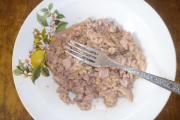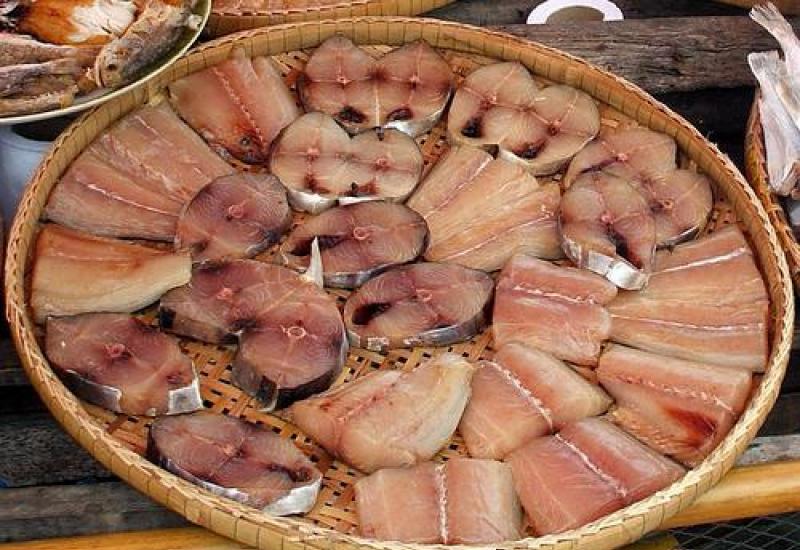Isn't it legal with your own. Where can I go with my food and drinks? Right to information
Go to a restaurant with your own food. The correspondent went to restaurants in the capital with his snack. I thought they would beat me.
In many catering establishments (a disgusting phrase, but nothing without it), you can see formidable signs with suggestions like "the use of food and drinks brought with you is prohibited." And then the numbers are fine. Usually the tables are hung in crappy cafes, nausea and pubs, where the contingent is quite simple. They will take a bottle of beer for a show-off, and get their vodka out of their pocket. And a crumpled sandwich.
There are no such warnings in decent places. Such prohibitions do not refer to any law. The question of whether it is possible to eat your food in some cafe and what will come of it formed the basis of this plot. It is believed that eating one's own is unacceptable and will immediately lead to a scandal - but is this really so, or is it a rudiment of the animal fears of the Soviet person before the all-powerful public catering workers? It was decided to check it out in a straightforward way: I bought a can of red caviar, wrapped it in a plastic bag and went to places where creative and not so Muscovites eat out.
Having decided to move along the ascending line from the plebeian establishments to those that are considered decent, the first thing I did was to go to the Mu-Mu cafe. You won't be interested in a caviar lover with sour cabbage soup and kebabs, so I sat down at the table and, hastily decomposed, proceeded to the snack. Devices can be taken at the beginning of the rack.
For bread it is necessary to defend the entire long line, as in the Mausoleum. It immediately became clear that eating your own food in “Mu-Mu” is as shocking as living in a box from under the refrigerator in the hall of the Kursk railway station - that is, it is absolutely not interesting for those around you.
The crowd of visitors, the hungry line at the distribution, dim lighting and the absence of waiters allow you to do anything. If you feel the urge to distort a couple or two of mom's cutlets or sandwiches chopped by a caring bride, and there is only “Mu-Mu” nearby - come and feel at home or at the food court. How you love more.
Further - "Rake" - a slightly more elegant attempt to feed the population with its usual zhrachka. The service and boarding system in "Rake" is identical to that in "Mu-Mu", so you can swallow your good at any free table. However, it is most pleasant to do this in the smoking area with a bar, where you can take champagne, brandy or phantom to the caviar. There are no servants, the guards are looking into the distance lyrically, in the middle of the hall at the shifted tables sits an uneven row of tipsy citizens. You can feast.
Having realized that semi-fast food establishments are now famous for their hospitality and tolerance towards guests for any purpose, I realized that I needed direct contact. I found myself not far from Starlight, where I decided to stop by to take food home. I went to Starlight, told the helpful hostess that I would take with me. The girl offered to drink something while waiting, to which I replied that I had something to pass the time and asked to bring a spoon. Sitting at a table next to the bar, cashier and waitress post, that is, in the center of events of any restaurant, he began to unhurriedly unpack caviar. The spoon was immediately served to me.
I started rolling red balls in my mouth melancholy, waiting for my order.
The waitresses bustling around did not pay any attention to me (a common story for diners, even though you eat pasties, at least cut the table), the bartender at the counter was chatting with friends who came to him. Soon my order was collected, the check paid, and the caviar was wrapped. It turned out to be a good idea to kill your hunger with your own snack while waiting for the order - you can pass the time if you take it away, you can have a snack while you leaf through the menu so as not to order too much out of hunger.
After such dense gastronomic sketches, it's time for a digestif in the cafeteria. Let's head over to Coffeemania. My intelligent eating of caviar cannot be compared with the feast that some clients once threw in one of the Coffeemanias, putting a large bundle of nishtyaks on the table. An acquaintance of the network told me about this case. She also said that there are no written rules regarding the use of their own products by guests in Coffeemania. Each case is left to the discretion of a particular manager. I asked this brave girl to clarify the "unspoken rules" from my manager. It turned out that, ideally, if the client brought and eats his own food, regardless of whether he made an order, then he would be asked to vacate the premises. If the guest disagrees, he will be threatened by the internal security service of Coffeemania (which is engaged, for example, in finding missing employees or investigating internal corporate conflicts, such as stealing large sums of money). However, such cases are often not worth a scandal on the part of the coffee shop. The same manager told how the grandmother recently came, drank coffee and seized cookies, which she dragged from her bag, trying to do it secretly. As our informant reports, “he simply did not dare to tell her anything”. In other words, what could be better than eating excellent smelly sprats with black humpback salmon on an autumn evening, wrapped in a warm blanket, drinking tea from a thermos and admiring the wind spinning leaves around the courtyard of the conservatory? Moscow idyll.
After all, the time has come for a drink, and a decent person should not delay it at all. After a business meeting, I went with a friend to John Donne to have a glass of the same caviar, which has long outlived its 36-hour shelf life. In an almost empty pub, we, sitting practically at the bar, could not wait for the attention of the waitress. But then the dear Russian caviar came to the rescue.
Putting the jar on the table, we immediately received both attention and a menu.
I took the cider, under which the caviar went quite well. I did not ask for a spoon and was not offered to me. I had to use my own. The staff did not resent my food again (if anything in the world can bring the John Donn girls out of paralysis, then this is clearly not caviar), as soon as the bartender chuckled a couple of times, noticing my feast.
And finally, we will go to the kingdom of supermen, the chamber of weights and measures of reference taste - to Red October. A Nazi T-shirt, a hermit's beard, a can of half-rotten caviar and generally not fashionable shorts - just the combination with which you need to go to Strelka. After claiming the largest table available, I ordered an angostura cocktail, which turned out to be very sweet, and again asked for a spoon. Once everything was on the table, it was time to sharpen your fishy oyster in the midst of this elven society. However, it was in Strelka that my behavior aroused a lively reaction among the visitors - a tired man who had a date looked at me with longing while his lady was carrying plates one by one. The red-haired girl from the company across from me obviously liked my idea and amused her a lot. Besides, I was sitting at the entrance to the veranda, and the first thing that polished chicks from the hipster factories came to wet their throats was a feral-looking spawn eater. However, in the whole history I did not catch a single condemning glance, just as I did not manage to run into a conflict in any of the institutions.
The editorial staff of The Village Belarus, with the help of experts, answers a variety of questions asked by the townspeople. This time we found out whether it is possible to bring your own food and drinks to cafes and restaurants. We asked the lawyer and representatives of Minsk institutions what they think about this.
Can I go to the bistro for lunch with my own bottle of water? Can I go to a cafe, order some food, and then get my sandwiches? Can I order coffee and have it with my own piece of cake? Can parents order food for themselves in a cafe, and children get their supplies or make a mixture? Can I bring my own alcohol?
Enzo Cafe:
Unfortunately, you can't come to us with yours. If we notice that a visitor takes out his food or drinks, we explain that this cannot be done, that it is better to order something from our menu. There is no official ban, but we are responsible for what people eat. We are fully confident in what we give our guests, but we cannot be sure of what people bring with them, and be responsible for it. For children, of course, we always make an exception, and for those with allergies, we try to find something.
Restobar "Buffet":
A priori, you cannot come to restaurants with your own food. We don't come to the cinema with a laptop and watch our movie there. If these are children or diabetics, then such situations are allowed. But usually children are ordered baby food, the maximum that they bring with them is baby formula. Diabetics usually go to certain restaurants where they have the food they need, or tell the waiter about allergies and foods they cannot eat. Then the waiter will recommend dishes without eggs, or without lactose, or without other allergens.
If we notice that a customer takes out his food, the senior administrator will come up to him and tell him that this is not supposed to be done. When asked why? we say that we are responsible for the quality of our food. And if a client begins to eat both our food and his own, and then something happens to him, then our institution may suffer.
But if a company orders a banquet, then it is possible to individually stipulate that they will bring some alcohol with them.
Olivier cafe:
No, you cannot bring food and drinks in normal situations. Only if it is a banquet on the occasion of a wedding or birthday, and there is a preliminary agreement with the institution. If a guest came to dinner with their bottle of water or cola, we would suggest leaving it in the wardrobe.
Cafe Grunwald:
We cannot eat our own food, nor drink our drinks. If this is a child and baby food for him, then you can. If we notice that a visitor is taking out his food, we warn him that this should not be done. Of course, we will not kick them out. The ban is explained by the fact that we are responsible for our prepared products. You can bring anything - fresh, not fresh - and get poisoned, and then you will come to us with complaints: they say, you were poisoned by our food or our drinks. You can take a cup of coffee to take away from another establishment, come to us, and then say that you have been poisoned by our water and lemon.
You can agree to a banquet and come with your own alcohol, if you comply with certain conditions. In this case, the brought alcohol must be closed, we will check every bottle.
Cafe Newscafe:
With your food or drinks - I'm afraid not, this is not customary with us. If we notice such a fact, then we will politely make a remark so as not to embarrass the guest. We have a great menu where you can choose from food for all tastes - our food will not disappoint anyone. If these are parents with small children and some kind of baby food in jars, then, of course, we do not prohibit this.
Cafe Bistronomia:
According to the standards of the sanitary and epidemiological station, we are responsible for the food we feed our guests. If after our meal you feel unwell, we are responsible for it. And if you come to our establishment with your food, and something happens to you, then we can no longer be responsible for this. So, like all other establishments, we do not allow you to bring your own food. If we notice this, then we will come up and say that this is not allowed in our country.
If these are parents with small children, then the parents themselves take responsibility for preparing the mixture, for example. At a banquet with your own alcohol - on general terms, this is also not allowed, each case must be negotiated separately. Food and alcohol are slightly different positions.
There is no direct prohibition on bringing and eating one's own food in official documents. Just like not and pour coffee into your cup. But in the Law of the Republic of Belarus dated January 8, 2014 No. 128-3 "On state regulation of trade and public catering in the Republic of Belarus", Article 11 says:
- 3. When organizing and implementing public catering, public catering entities have the right to determine:
- 3.2. the procedure and conditions for the implementation of public catering, including:
- range of catering products;
- menu;
- a list of services provided related to the implementation of public catering;
- ways of communicating to buyers information about the public catering products and goods offered for sale, about the services provided related to the implementation of public catering;
- [...]
- 3.5. other conditions for the organization and implementation of public catering.
This means that in a cafe or restaurant, a visitor may be prohibited from eating his own food - this prohibition will fall under the clause "other conditions for organizing and implementing public catering." But you can try to defend your rights: since it is not forbidden, then it is allowed?
Sergey Zikratsky
You can defend your rights only by exercising them. But if you are forbidden to eat your own food, all you have to do is leave and then complain that someone would be punished for violating your rights. It is unlikely that it will be possible to solve something right on the spot. Like, for example, the ban on photography in stores. How, then, can you defend your rights? Either you continue to photograph and provoke employees into a conflict, and then the police figure out who is right and who is wrong, or you don’t continue to take photographs, you don’t provoke a conflict, and then you complain to the court or other state body.
You can demand a book of complaints and write that, they say, they forbid me to eat my own food in the cafe. The question here is solely in the effectiveness of certain mechanisms. This mechanism - an entry in a book - can be useful if you need to record a fact. Not even in order to achieve justice, but simply to record the fact itself. Then we leave a record in the book of comments and suggestions, we get an answer to it: everything was done within the framework of the law. And we are not even always interested in the answer itself - we already understand what will be written there - rather, we are interested in the very fact that the administration of the organization, by its response, recognizes that certain actions have been performed.
If there is an obvious arbitrariness, and we want to convey to the management of the institution that their employees are engaged in arbitrariness, then it makes sense to write comments and suggestions in the book. And if the question is only in the policy of the organization, then we will not change this policy of the organization with the remarks in the book. That is, the book of complaints is a mechanism provided by the state, but its effectiveness can be questionable.
Text: Alexander Lychavko
I have a question: does all this apply to catering establishments? Is it legal to come to a cafe with your own beer and snacks? What if I order a beer and eat my own food?
If I get my food, and I am banned or asked to leave altogether, can I refer to that court decision and ask for the complaint book? Is it worth complaining about such restrictions to Rospotrebnadzor?
Olga, we have nothing to please you with. You cannot come to a cafe with your own food if the cafe is against it. A court decision on water parks will not work in this situation. You can go to the cinema, to the stadium and to the park with your own food, but you cannot go to a cafe or restaurant.
Editorial staff
How food in a cafe differs from a water park
A water park, bowling alley or children's room is a place to relax. People come there to swim, not eat. Food on site is an additional, not a basic service. And the cafe on the territory of the water park is a separate object. The relationship between visitors to recreation sites and the establishment is regulated by the consumer protection law.
A cafe in a shopping center or a stand-alone restaurant is a catering establishment. People come there to eat. There are special rules that have been approved by the government. On the one hand, a café visitor is a consumer and is protected by general norms. On the other hand, there is a by-law that specifies exactly how to provide services in cafes and restaurants.
What the rules say about their food in a cafe
When a visitor comes to a cafe or places an order, he actually concludes a contract. The terms of this agreement are determined by the cafe. If the visitor wants to conclude a contract, he must agree with them.
For example, food conditions may include:
- you cannot sit in outerwear at the tables or eat your own food;
- with your own food is allowed, but you need to make an order for 500 rubles;
- only children can eat their own;
- You cannot bring food with you, but you can.
If a cafe has a ban on its food, it is not a violation, but a condition that it can set by law.
But there is a requirement: the cafe must convey these rules to visitors in some understandable and noticeable way. For example, write on the menu, in the consumer's corner or near the checkout. Different cafes may have different conditions. But in one institution, they cannot be different for visitors. All clients can enter into an agreement on an equal footing: at the same prices and with the same rules. If the conditions of one institution are not suitable, you can choose another.
Catering establishments have a specific goal: to prepare food and serve customers. The cafe is responsible for the quality of food, and in which case it will be asked. If guests bring their own food, the cafe will not be able to be responsible for its quality.
To find out if you can bring your own food to the cafe, you just need to ask the cashier or administrator. Or ask them to show the rules, which describe the terms of service. So you can make a list of places where you can drink your beer and eat your food.
Sometimes the institution simply enters into the position of the client, even if there are no assumptions in the rules. For example, if one of the guests does not drink drinks with sugar or the child needs a special meal.
Do not rush to threaten with a complaint to Rospotrebnadzor. If the cafe is prepared, it will be useless.
But if in the conditions of the institution there is nothing about bans on your food, and you need to be right here and with your food, defend your rights. Record any violations: for example, you can photograph the rules on a consumer board. What is not prohibited is permitted.
Face control
Sometimes cafes use their rights to set limits and go too far. For example, they deny service to visitors or even do not let them in. And the reason is not called: we simply do not let us in, and that's it, they didn't come out face-to-face.
It is illegal. The terms of service should have a specific constraint with clear criteria. For example, you can not be allowed into a restaurant in dirty clothes or in a state of intoxication - then the rules should be written that way. But it is impossible to refuse service due to insufficiently pleasant appearance. And even more so, one cannot refuse to visit a cafe for a disabled person or on a national basis. This is already a violation of the rules of the public contract and consumer rights.
With the growing demand for public catering services, the quality of their provision in some cases causes complaints from citizens.
Therefore, the consumer should be aware of their rights when using these services.
Relations in the field of consumer protection in the provision of public catering services are regulated by the Civil Code of the Russian Federation, the Law of the Russian Federation dated 07.02.1992, No. 2300-1 "On Protection of Consumer Rights" (hereinafter the Law on the Protection of Consumer Rights), the Rules for the provision of public catering services, approved Decree of the Government of the Russian Federation of 15.08.1997, No. 1036 (hereinafter referred to as the Rules).
All catering establishments are divided into five types: restaurant, bar, cafe, canteen, snack bar.
In turn, restaurants and bars, according to the level of service and the range of services provided, are divided into three classes: luxury, superior and first, which must meet certain requirements. Cafes, canteens and eateries are not subdivided into classes.
Right to information
The following information is placed on the signboard of a catering organization: company name (name) of the organization; its location (address); type, class and mode of operation.
An individual entrepreneur must also provide information on state registration and the name of the registering body.
If the activity of the contractor is subject to licensing (retail sale of alcoholic beverages), then he is obliged to bring to the consumer information about the number, the validity period of the license, as well as the authority that issued it, which is located in places convenient for the consumer to familiarize himself with (consumer corner).
The Contractor is obliged to bring to the attention of consumers the necessary and reliable information about the services provided in a visual and accessible form, ensuring the possibility of their correct choice.
The information must contain:
list of services and conditions for their provision;
prices in rubles and terms of payment for services;
the name of the offered public catering products indicating the methods of cooking and the main ingredients included in them;
information on the weight (volume) of portions of ready-made meals of public catering products, the capacity of consumer containers of the offered alcoholic beverages and the volume of its portion.
information on the nutritional value of public catering products (calorie content, content of proteins, fats, carbohydrates, as well as vitamins, macro- and microelements when they are added during the preparation of public catering products) and composition (including the name of the food additives used in the manufacturing process , biologically active additives, information on the presence in food of components obtained with the use of genetically modified organisms).
designation of regulatory documents, the mandatory requirements of which must comply with catering products and the service provided.
rules for the provision of catering services.
The consumer has the right to receive additional information about the main consumer properties and quality of the offered public catering products, as well as about the conditions for cooking, if this information is not a commercial secret.
How is information communicated?
Information about products and services is brought to the attention of consumers in Russian by means of menus, price lists or by other means adopted in the provision of such services. Moreover, the consumer should be able to get acquainted with the information, both in the hall and outside the service hall.
In the menu (wine list), the performer indicates the name of alcoholic beverages, the volume and price of alcoholic beverages in consumer containers, if the performer offers and sells alcoholic beverages in consumer containers, and (or) the name of alcoholic beverages, volume and price per portion not exceeding 1 liter alcoholic beverages (portion size is set at the discretion of the performer).
The procedure for the provision of services
The contractor is obliged to provide the service to any consumer who has contacted him with the intention of ordering it, on the terms agreed by the parties.
At the same time, the contractor has the right to independently establish rules of conduct for consumers in the places of service provision (smoking prohibition, ban on wearing outerwear and other rules that do not contradict the legislation of the Russian Federation).
Often, at the entrance to some catering establishments, you can find an announcement about the right of protection to refuse to visit without explaining the reasons. This, in turn, limits the rights of consumers, because the institution is obliged to provide its services to any consumer who applies, and the conditions should be the same for everyone. In addition, the visitor has the right to receive all the necessary information, incl. and according to the conditions of entry to the institution. Thus, the wording “without explaining the reasons” is contrary to the norms of the law. The information must be complete and not discriminatory.
Pre-order a table
In all catering organizations it is possible to pre-order a table - the rules for the provision of catering services allow you to do this. It can be drawn up in writing, or by telephone, electronic or other communication. If money is charged for the "booking", this does not contradict the law, but later this amount must be credited to the order.
A preliminary order is drawn up with a document containing such necessary information as: a) the name of the contractor; b) the full name of the consumer; c) type of service, its price and terms of payment; d) the dates of acceptance and execution of the order; e) conditions for the performance of the service; f) responsibility of the parties; g) the position of the person responsible for receiving and placing the order; h) signature of the person who accepted the order; i) other information.
The moment and method of payment for services (preliminary, after the selection of dishes, after a meal, with or without advance payment, cash or non-cash payment) is determined by agreement of the parties.
When paying for the order, the consumer must be issued a document confirming the payment of money (cash register receipt, invoice or others).
Services must be provided to the consumer within the time frame agreed with him (clause 18 of the Rules).
Consumer's right to refuse services
The consumer's right to refuse the service ordered by him is enshrined in Art. 32 of the Law on the Protection of Consumer Rights and paragraph 27 of the Rules. In case of refusal from the ordered service, the consumer is obliged to pay to the same restaurant the actually incurred costs associated with the fulfillment of obligations under the contract.
Thus, when concluding an agreement on the provision of services for the organization and holding of banquets, catering enterprises are not entitled to include in its text a condition that if the consumer refuses these services, the prepayment amount is not refundable. The contractor has the right to claim exactly the amount that covers his actual costs in connection with the execution of this contract. Moreover, all expenses must be documented.
The consumer wants to weigh the dish
The contractor is obliged to provide the consumer with the opportunity to check the volume (weight) of the products offered to him (clause 21 of the Rules). For the consumer to check the correctness of the measure and weight of the purchased dish, appropriate measuring equipment (scales) must be installed in an accessible place.
Consumer rights violated
In case of violation of the terms of execution of the preliminary order for the provision of services, the consumer has the right, at his choice: a) to appoint a new term for the contractor; b) demand a reduction in the price of the service provided; c) refuse to execute the service agreement.
If the consumer discovers the shortcomings of the service provided, then, by virtue of clause 26 of the Rules, he has the right at his choice to demand: a) gratuitous elimination of the shortcomings of the service provided, including catering products; b) reducing the price of the service provided, including catering products; c) free re-manufacturing of catering products of proper quality.
So, if foreign objects (for example, flies, glass) were found in the dish, then the consumer has the right to demand to re-prepare the dish of good quality for free within the period provided for by the service agreement, which was improperly executed (in other words, within the originally established period).
If the food is simply poorly prepared, then it is based on paragraphs. 2, clause 26 of the Rules has the right to demand the free elimination of the deficiencies of the service provided, including catering products (for example, heat up, cool, add salt, fry, cook until ready, etc.).
Among other things, the consumer has the right to refuse to fulfill the contract for the provision of the service and demand full compensation for losses, if the shortcomings of the service provided are not eliminated by the contractor within the period specified in the contract. The consumer also has the right to refuse to fulfill the contract for the provision of services if he discovered significant shortcomings in the service provided or other significant deviations from the terms of the contract.
It must be remembered that the contractor must have a book of reviews and suggestions, which is provided to the consumer at his request, and the consumer should receive from the contractor a document confirming payment for the services rendered (cashier's receipt, etc.).
It is best to file claims against the service provider in writing, in two copies, handing one of them to the contractor against signature (or by sending it by registered mail with notification and a list of attachments).
The most common misconceptions about what we can demand in catering establishments.
It is less and less necessary to “download rights” in modern restaurants - in the conditions of today's competition, loyalty to guests for the institution is above all. Everyone knows this and even misuses it to the extent of the harmfulness of their character. As a result, many of the consumers have not looked into the law for a long time - and in the meantime, it has managed to acquire many myths.
As it turned out, even in our editorial office there were false rumors about what the consumer was entitled to in the restaurant. Moreover, we are not talking about some subtle nuances of legislation, but about whole phenomena that we encounter almost every day. Having studied the issue in detail, we present to your attention five main erroneous opinions that have taken root in the minds of most people.
GLASS OF WATER
- Myth # 1: In any catering establishment, at your request, you are obliged to serve a glass of water for free.

A very common request, usually accompanied by a comment like “I have to take a pill”. Add to this a heavy expression calling for humanism and morality - and a glass of water from the cooler is already yours. The funny thing about this is that even the staff of the establishment often do not know if you are eligible for this, and simply decides to take the path of least resistance.
In fact, there is no such law. Ten years ago, some press discussed the feasibility of introducing it, but the fuss around this idea ended in nothing. However, the rumor was picked up, and since then the opinion has strengthened in society that this rule is spelled out somewhere.
For the sake of interest, the author of this article decided to conduct an experiment - for a month in different institutions, along with the order, she asked “just a glass of water”. In 100% of cases (which is about 20 different restaurants and cafes) it was brought. Once they said that there was no cold water, but they could bring hot water with ice (and they brought it), and once again they only timidly noted that in general they have water on the menu, but 1 glass - so be it. What is it - immeasurable loyalty or ignorance of the law? Unclear. But the consumer here clearly wins, for which our good public catering - thanks.
RESTROOM
- Myth number 2: You have the right to go from the street to the toilet of any cafe or restaurant.

Here the story is the same as with a glass of water: once they wanted to do it by law in an attempt to save money on organizing public latrines. As a result, a decree of March 23, 2004 N 433 was issued, where in paragraph 7 it was ordered "to recommend to the heads of public catering establishments to ensure unhindered access of citizens to toilets located on the territory of these enterprises, free of charge." Firstly, “to recommend” is not to oblige, and secondly, this document became invalid in October 2007.
Therefore, relying on its own rights and adherence to principles, the restaurant may refuse you this pleasure. However, in general, here, again, there is a positive picture for the consumer - apparently, the consciousness of our society is becoming more civilized, and in practice, you will not be blocked anywhere in this cherished place. Well, unless you look like a bum with a bag, or do not look like a drug addict who will lock himself in a booth until the evening.
An interesting fact: in Rome, for example, such a law exists, and there catering establishments have no right to prohibit anyone from visiting their restroom. At first glance, this is an excellent rule - but there is also its negative side: most toilets, even in extremely pleasant restaurants, are not terribly cleaned. The opposite situation is in Paris - there, although the rights in this respect are the same as ours, there is no question of any loyalty. If you try to walk carefully from the entrance to the restroom, the waiter who has run up can grab you by the sleeve and, with indignant shouts (yes, yes), escort you out. Perhaps this is some kind of special dislike for tourists.
WE HAVE ALREADY PUNCHED
- Myth number 3: First you get a check, then you pay.

In fact, the check itself should be brought to you only with change. What is brought in at the beginning is the “ancestor”: a piece of paper printed from the restaurant's computer program, in which general records are kept. In other words, this is not a fiscal cash document, the change of which requires a lot of efforts of the accountant. Therefore, if the invoice contains an error, you are obliged to reprint it.
In general, ancestors are a pretext for many manipulations and deceptions. Moreover, it is not consumers who suffer here, but the owners of the establishment themselves. Keep in mind - if, after paying the bill, you were not brought a fiscal check, it means that the money went into the pocket of the waiter. You can distinguish a real check from a "preliminary" one by the letter "F" in one form or another present on it; the most common abbreviation is "FP".
Another thing is the internal restrictions and fines that restaurant owners set in order to protect themselves from theft. Then, if it is required, for example, to delete something from the account, then either the waiter or the cook will probably be financially liable for this. In such cases, you may be openly pressed for pity, as it was once in my memory in one restaurant - after a dispute with the waitress, the administrator approached me with the words: “Yes, perhaps the girl heard you wrong when ordering, but you understand that now she will have to pay for it with her own money? " That is, not only did they bring me the wrong order and supposedly have to pay for it - besides, I should feel like an encroach on someone else's bread. Well, just greedy and inhuman. Alas, this tactic is often used. But remember - formally all these are "Indian problems" for you from that cynical saying. You have your rights, and the subordinates of the catering organization have theirs. And to mix them or not is your own business.
WELL WHAT IS THIS MERLO
- Myth number 4: when you are given a sample to be sampled from a bottle of wine, you can refuse it if you do not like it.

The classic picture: the guest tastes a sip of wine and depicts a terribly serious multi-understanding look on his face, then smacks his lips and importantly sums up: "Well, nothing, let's go." Such a scheme of actions and mimic manipulations has finally taken root in our imagination. Many even fundamentally refuse the opportunity to be the first to taste the wine, fearing that their opinion in the company will not seem too competent.
In fact, the wine is allowed to taste only in order to determine if it has turned sour. Yes, no sacred knowledge about the correct tannin of a particular variety is required from you. Anyone can understand whether the wine is spoiled or not. It's like distinguishing fresh cabbage soup from fermented cabbage soup - a pungent unpleasant smell and sour taste.
“It seems to me that now most people already know exactly why they are allowed to taste wine,” comments Leonid Sternik, a well-known St. Petersburg sommelier and co-owner of the Vincent restaurant. - From my practice, for example, I remember a case when guests tried to refuse a bottle, because semi-dry riesling (and the fact that it was semi-dry was indicated in the card) seemed too sweet to them. It was at the "Cow-bar" on Moskovsky. It all ended in a scandal, I even called the owners of the restaurant, but the client still had to pay, since he was wrong in all respects. And I'm sure these people could achieve their goal if it happened in a restaurant that is very loyal to its guests. Personally, I do not appreciate this "flexibility" - this approach corrupts clients, and in the end, conflicts occur. In general, such situations do not occur often - a maximum of 1% out of a hundred. It is much more common to come across the erroneous opinion that wine has deteriorated if its cork is soaked. But in reality, this is a completely common occurrence for aged wines, which, as a rule, are five years old or more. "
FLY IN SOUP
- Myth number 5: If something is not right in the food, this dish can only be replaced.

Often, in order not to miss out on your earnings, the restaurant may tell you that they can only replace your spoiled dish with something else. It turns out, having experienced all the shades of disgust after you found a fly, hair or, God forbid, something else in the soup, you are offered to order and eat another creation of the same dishonest chef.
In fact, in accordance with paragraph 1 of Article 18 of the Law of the Russian Federation "On Protection of Consumer Rights", the consumer, upon discovering defects in the product, if they were not agreed by the seller, has the right to refuse to pay or demand the amount paid for the product. In this case, at the request of the seller, the consumer must return the goods with defects.
In other words, you may simply not pay for fly soup. If you are plaintively persuaded to enter into their position (they say, the staff will have to pay), then feel free to refer to the advice in the previous paragraph: these are not your problems.
Yes, and the “shortcomings” of the service in this case include only defects associated with violation of sanitary standards, which poses a threat to your health. If you did not like the very performance of the dish (for example, instead of the usual pannacota, they brought some kind of foam with a ground powder), then this will be called "author's performance", and there is no point in complaining.
The editors would like to thank Alexey Korotkov (Partner Bar Association) for the legal advice to draft the article













